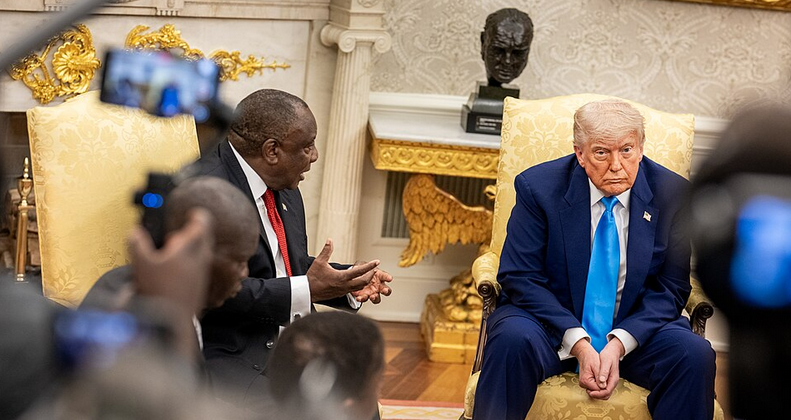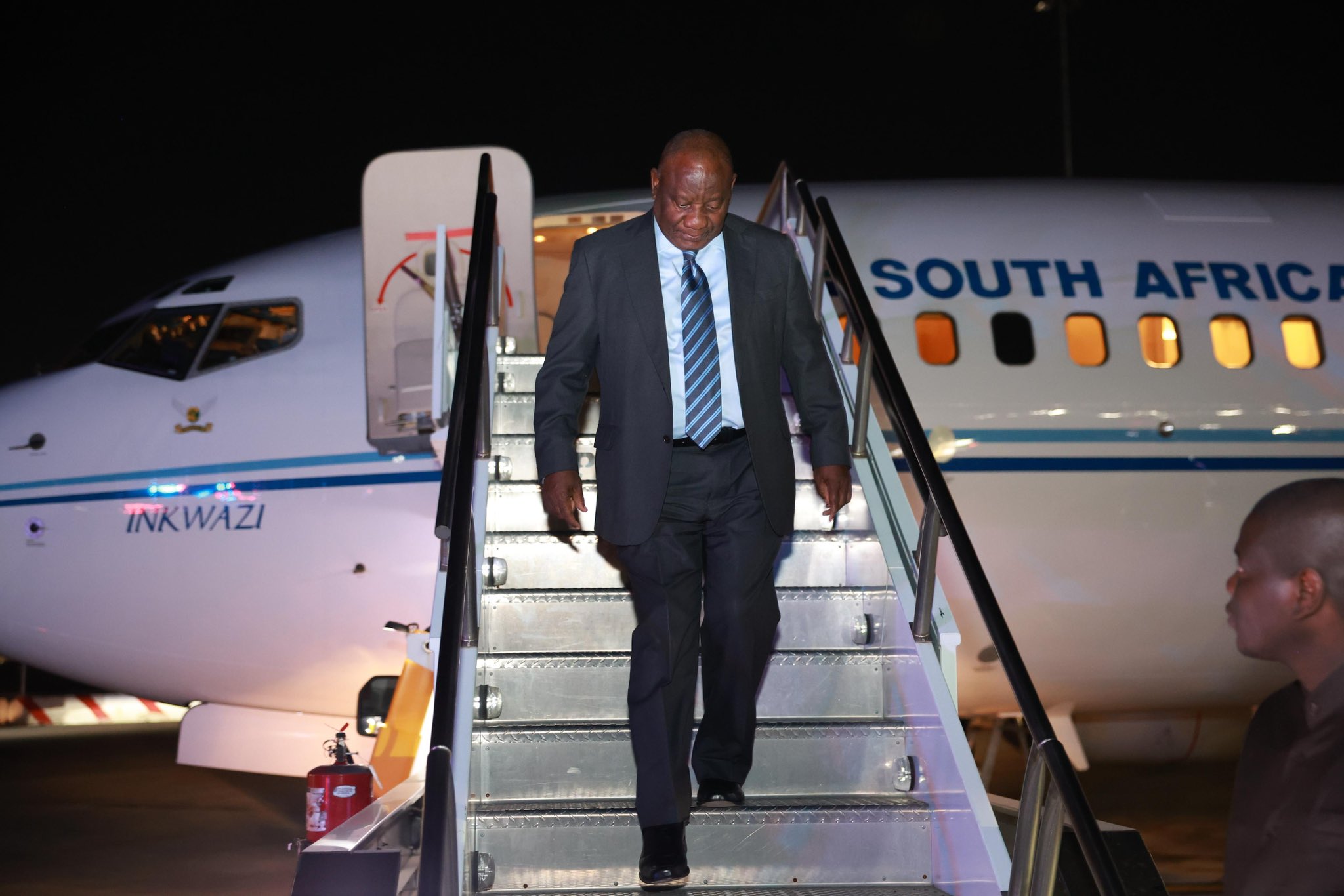SCA Orders King Misuzulu’s Rivals to Pay Costs in Royal Recognition Case
In a landmark decision that brings closure to a heated battle over the Zulu throne, the Supreme Court of Appeal (SCA) has upheld President Cyril Ramaphosa’s recognition of King Misuzulu kaZwelithini as the rightful monarch of the Zulu nation. This ruling overturns a previous judgement from the Pretoria High Court, which had declared the president’s actions unlawful and invalid. The outcome not only solidifies King Misuzulu’s position but also orders his rivals, including Prince Simakade kaZwelithini Zulu, to cover significant legal costs, marking the end of a nearly three-year succession dispute that has gripped South Africa.
The SCA’s judgement, delivered on Monday in Bloemfontein, sets aside the challenges brought by Prince Simakade and Prince Mbonisi Bhekthemba ka Bhekuzulu, along with 27 others. It dismisses their applications and cross-appeals, affirming that the process followed by President Ramaphosa in recognising King Misuzulu was proper and in line with traditional customs and legal requirements.  This victory for the president and the king comes after months of anticipation following arguments heard in May this year.
Background to the Zulu Royal Succession Dispute
The roots of this legal tussle trace back to the passing of King Goodwill Zwelithini kaBhekuzulu in March 2021, after a reign that lasted over five decades. As the longest-serving Zulu king, his death left a void in the leadership of one of South Africa’s largest ethnic groups, sparking intense debates over who should succeed him. Under Zulu tradition, the successor is typically identified through family consultations and customs, often involving the king’s wives and senior royals.
King Misuzulu, born to the late king’s third wife, Queen Mantfombi Dlamini-Zulu, emerged as the nominee supported by key figures in the royal family, including the traditional prime minister, Prince Mangosuthu Buthelezi. Queen Mantfombi, who briefly served as regent after her husband’s death, had reportedly designated Misuzulu as her preferred heir before her own passing in April 2021. This nomination was formalised through traditional processes, leading to President Ramaphosa issuing a certificate of recognition in October 2022, with an official handover in March 2023 at a ceremony attended by thousands.
However, not everyone in the royal family agreed. Prince Simakade, considered by some as the eldest son from King Goodwill’s first marriage to Queen Sibongile Dlamini-Zulu, claimed he was the legitimate heir. He argued that his mother’s marriage under civil law gave him precedence over siblings from customary unions. Prince Mbonisi, another half-brother, supported this view and sought to restart the entire identification process, alleging irregularities in how Misuzulu was chosen. Their challenges highlighted deep divisions within the Zulu royal household, involving questions of customary law, polygamous marriages, and the role of the president in recognising traditional leaders under the Traditional and Khoi-San Leadership Act of 2019.
The dispute escalated into multiple court cases, with tensions spilling over into public protests and even violence in some KwaZulu-Natal communities. Supporters of both sides, including Zulu warriors known as amabutho, gathered outside courts during hearings, underscoring the cultural and emotional stakes involved.
The Pretoria High Court Ruling and Its Fallout
In December 2023, the Pretoria High Court delivered a blow to King Misuzulu’s camp. Judge Norman Davis ruled in favour of Princes Simakade and Mbonisi, finding that President Ramaphosa had not followed the correct procedures in recognising Misuzulu. The court declared the recognition unlawful and invalid, ordering the president to appoint an investigative committee to re-examine the succession process. This included probing whether the royal family’s consultations truly reflected Zulu customs.
The judgement sent shockwaves through the Zulu nation and beyond, raising concerns about stability in KwaZulu-Natal, a province with a history of political and social unrest. King Misuzulu’s supporters viewed it as an interference in traditional matters, while his rivals hailed it as a victory for fairness. President Ramaphosa, as the first appellant, quickly appealed the decision, arguing that he had acted on the advice of the royal family and in accordance with the law. King Misuzulu joined as the second appellant, with the Minister of Cooperative Governance and Traditional Affairs as the third.
The High Court’s order also touched on broader issues, such as the validity of King Goodwill’s marriages. For instance, it questioned whether some unions were customary or civil, which could affect inheritance and succession rights among his 28 children from six wives.
The Supreme Court of Appeal Proceedings
The appeal was heard by the SCA in Bloemfontein in late May 2025, with roads around the court cordoned off due to large crowds of supporters. Arguments centred on whether the president had overstepped his bounds or if the High Court had misinterpreted the Traditional Leadership Act. Ramaphosa’s legal team contended that the recognition was based on the royal family’s identification process, which the president is required to endorse unless there are clear flaws.
Prince Simakade and his allies countered that the process was flawed from the start, claiming bias and exclusion in the family meetings. They also filed cross-appeals, seeking to reinforce the High Court’s findings. Judgement was reserved, leaving the Zulu nation in suspense for over four months until the ruling was handed down on 6 October 2025.
Deputy President Dumisani Zondi, who penned the judgement, emphasised the need to respect traditional processes while ensuring they align with constitutional principles. The SCA examined evidence from royal family meetings, affidavits from key players like Prince Buthelezi, and legal precedents on traditional leadership.
Key Details of the SCA Judgement
In its detailed order, the SCA upheld the appeal by President Ramaphosa, King Misuzulu, and the minister. It set aside the High Court’s orders and replaced them with dismissals of the original applications under case numbers 19891/2022 and 38670/2022.
Specifically:
The first applicant’s (Prince Simakade’s) bid to invalidate the recognition was dismissed.
Prince Simakade was ordered to pay King Misuzulu’s costs, including those for two counsel where employed.
A similar dismissal and cost order applied to the second application.
The first and second respondents (Princes Mbonisi and Simakade) must pay the second appellant’s (King Misuzulu’s) costs, again including two counsel.
The cross-appeals by the rivals were dismissed with costs, to include two counsel.
This cost order underscores the SCA’s view that the challenges lacked merit, potentially running into millions of rands given the high-profile nature of the case and the involvement of senior advocates. The judgement referenced legal precedents, such as the 2001 Salviati and Santori case, to justify its approach to appeals and costs.
The full list of parties highlights the complexity: Appellants included the president, King Misuzulu, and the minister; respondents were Prince Mbonisi and 27 others, Prince Simakade, Prince Buthelezi (who supported Misuzulu but was cited), and the KwaZulu-Natal Premier.
Implications for the Zulu Nation and Traditional Leadership
This ruling cements King Misuzulu’s status as the undisputed Zulu monarch, allowing him to focus on uniting the nation and addressing issues like cultural preservation, economic development in rural areas, and youth empowerment. It also reinforces the president’s role in traditional affairs, clarifying that courts should not lightly interfere in customary processes unless there’s evidence of gross irregularity.
For Prince Simakade and his supporters, the defeat is a setback, but some analysts suggest it could open doors for reconciliation. The Zulu royal family has a history of internal rivalries, yet traditions emphasise unity under the king. Prince Buthelezi, a veteran politician and founder of the Inkatha Freedom Party, has long advocated for Misuzulu and may play a key role in healing divides.
Broader implications touch on South Africa’s constitutional framework, where traditional leadership coexists with modern democracy. The case sets a precedent for similar disputes among other ethnic groups, like the Xhosa or Venda, ensuring that cultural customs are respected while upholding the rule of law.
Calls for Unity and Moving Forward
In the wake of the judgement, members of the Zulu royal family have called for unity, urging all parties to set aside differences for the greater good of the nation. King Misuzulu, now free from legal clouds, is expected to strengthen his engagements with communities, government, and international partners.
🔴Central News Weekly Edition | Issue 115 🔴Download the Latest Print and E-Edition | Headline: Ngwathe Municipality Refuses to Back Down, Heads to Supreme Court of Appeal
Download Here:
Direct PDF File Here:
https://centralnews.co.za/wp-content/uploads/2025/07/Central-News-Issue-114-1.pdf
Read all our publications on magzter:
https://www.magzter.com/ZA/Central-News-Pty-Ltd/Central-News/Newspaper/All-Issues
Central News also offers Sponsored Editorial Content, Podcasts , Radio / Social Media Simulcast, Video Production , Live Streaming Services, Press Conferences, and Paid Interviews (Video/Audio) etc.
We guarantee exceptional exposure, reach, and engagement, with an excellent return on investment.
Advertisement:
To place your advert on our platforms (Print Newspaper or Digital Platforms) : Please email : sales@centralnews.co.za
For Business Related:
business@centralnews.co.za
Newsroom:
Send your Stories / Media Statements To: newsroom@centralnews.co.za
General Info:
[SRC] https://centralnews.co.za/sca-orders-king-misuzulus-rivals-to-pay-costs-in-royal-recognition-case/
 Visit the website
Visit the website





